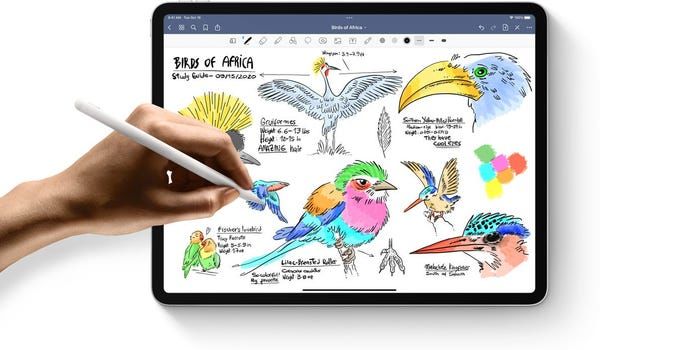
I was a die-hard Apple iPad fan for over a decade. But I've grown frustrated and have mostly discarded it — I'm not the only one.
In 2011, when the iPad had been on the market for about a year, it was declared an instant — and somewhat shocking — success, with around 15 million units sold and $10 billion in revenue in its first nine months. And Apple took a victory lap over the many, many media reviewers who had predicted it would fail.
It was a game changer back then for offering a large, high-resolution touchscreen in a compact, portable form that was ideal for consuming media, browsing the web, and running a variety of apps. This was in an era where even the smartest of phones were terrible at those functions and when laptops had no touchscreens and were often clunky, with short battery life.
As a technology analyst and writer, I bought my first iPad back then and loved it. It was my constant travel companion and even, at one point, used for my productivity needs instead of a laptop.
But much has changed in the smartphone world, and the most important part of the iPad has not kept up.
Today I use a Galaxy Z Fold4, which transforms from a 6.1" smartphone into a 7.8" tablet (about the size of an iPad Mini), and a MacBook Air, which has spectacular performance and battery life.
I still own an iPad Pro, but I hardly ever reach for it. It's a cool device and significantly better than what was introduced in 2010. At the same time, it's a jack-of-all-trades but master of none, so I can no longer justify its existence as part of my ecosystem. I'm sure I will eventually hand it down to a child in my family so they can watch "Sesame Street" videos on it and draw pictures. It's a great tool for both, albeit a little pricey for the tasks.
From my very familiar viewpoint, the iPad's current state is a testament to its limitations and the challenges it faces.
 After a decade, Gartenberg
doesn't reach for his iPad anymore but for his much more versatile and
travel-friendly Galaxy Z Fold4.
After a decade, Gartenberg
doesn't reach for his iPad anymore but for his much more versatile and
travel-friendly Galaxy Z Fold4.Powerful hardware, frustrating software
One of the iPad's biggest issues is that its hardware is increasingly overpowered relative to the apps available for the device. With each new iteration, the iPad has gotten faster and more capable, but the quality and quantity of iPad apps have not kept pace, despite Apple's promises of "desktop class" apps for it.
So iPad users, like myself, are paying a premium for hardware that is far more advanced than the software we are able to run on it. This situation is exacerbated by Apple's treatment of developers. When they have ideas for new iPad apps, they have to take on the costs of development, only to later cope with a 30% Apple tax — Apple's cut of their revenues — and increasingly fickle App Store rules.
If Apple plans to make the iPad a truly capable device with first-class apps, it's going to need to take developer relationships a lot more seriously. Developers should not have to appeal on social media to get Apple's attention on highly subjective App Store rules and whims.
Another major issue is that the user interface, based on iOS, has become increasingly complicated over time. With each new release of iOS, Apple has added features and functionality, making the operating system more powerful but more complex. This has made it more difficult for users to find the features they need, leading to confusion and frustration.
Here are just a few examples. The iPad supports a wide variety of gestures, including swipes, pinches, and taps, that can be used to navigate and interact with apps. But many users find these gestures hard to learn, and they are not apparent without some explanation or guidance beyond what the iPad offers.
While the iPad is highly customizable, the process of customizing settings and preferences is more than a bit arcane. Configuring things like the "dock," the "control center," and your notifications can take some time to figure out, and the options are buried levels deep under settings.
The iPad's accessibility settings allow you to create custom gestures that can be used to perform various tasks. For example, you could set up a gesture that allows you to quickly access the App Switcher or one that lets you quickly toggle on or off a specific setting. But setting up these custom gestures can be a bit difficult, as it requires you to navigate the accessibility settings to even know they exist.
Stage Manager, the iPad's new showcase feature for multitasking, isn't even turned on by default. It's hidden away — and for good reason. It's difficult to use, and I would need to write a full-length review to describe just how truly awful my experience with it has been.
An in-depth review from MacStories' Federico Viticci tells you all you need to know: He spends most of it venting about his inability to get the feature to work without crashing his whole system. The fact that you need a full-length review to describe a feature included in the operating system tells you just how far Apple has strayed from the "it just works" mantra of the Steve Jobs era.
 The iPad is great for drawing and kids apps but a bit pricey for those activities.
The iPad is great for drawing and kids apps but a bit pricey for those activities.
A touchscreen MacBook would kill the iPad
My final reason for concern is that the perception of the iPad as a secondary device is being reinforced by the recent rumors of a touchscreen MacBook.
If such a device came to market, it would likely offer many of the same features and capabilities as the iPad, but with an operating system that already supports decades of powerful, business-grade applications — everything from Adobe's creative applications to Microsoft's Visual Studio, or for that matter, Apple's own app-development platform, Xcode.
Presumably, it would arrive as a touchscreen-keyboard situation, a form factor that's more familiar and traditional for laptop users. This would make the iPad practically obsolete. Virtually anything one could do on an iPad would now be possible on a Mac, while the reverse would not be true. While the iPad would remain good for browsing the web or watching videos, it wouldn't be as capable as a MacBook for getting real work done, and an iPhone, even with a large screen, is more portable, and just as beautiful, for consuming media.
Now I do realize that the iPad was the shining star in Apple's last reported quarter — October to December, which included the holiday shopping season. It was the only Apple segment that didn't decline in revenue, coming in at $9.4 billion versus $7.76 billion in the prior year.
But the iPad's net sales overall declined in its previous full fiscal year — September 2021 to September 2022 — to $29.3 billion, down 8% over the year-prior period. Whether that was a trend or an anomaly, we'll have to wait to find out.
I think that the iPad's great holiday season had to do with a new, more expensive iPad Pro introduced earlier that year, as opposed to a trend of the iPad growing in sales and popularity. In its fourth fiscal quarter of 2022, for example, the three months that ended on September 24, iPads brought in $7.17 billion in revenue, down from $8.25 billion in the year-ago quarter, which is much more in line with how the iPad has performed over time.
If Apple wants to continue to succeed with the iPad, it will need to address these challenges head-on. This may mean simplifying the iOS user interface, investing more in the development of iPad-specific apps, and focusing on its internal software to better leverage the strengths of the iPad's hardware.
Whatever the solution, it is clear that the iPad is at a crossroads, and the decisions that Apple makes in the coming months and years will be critical to its continued success.











